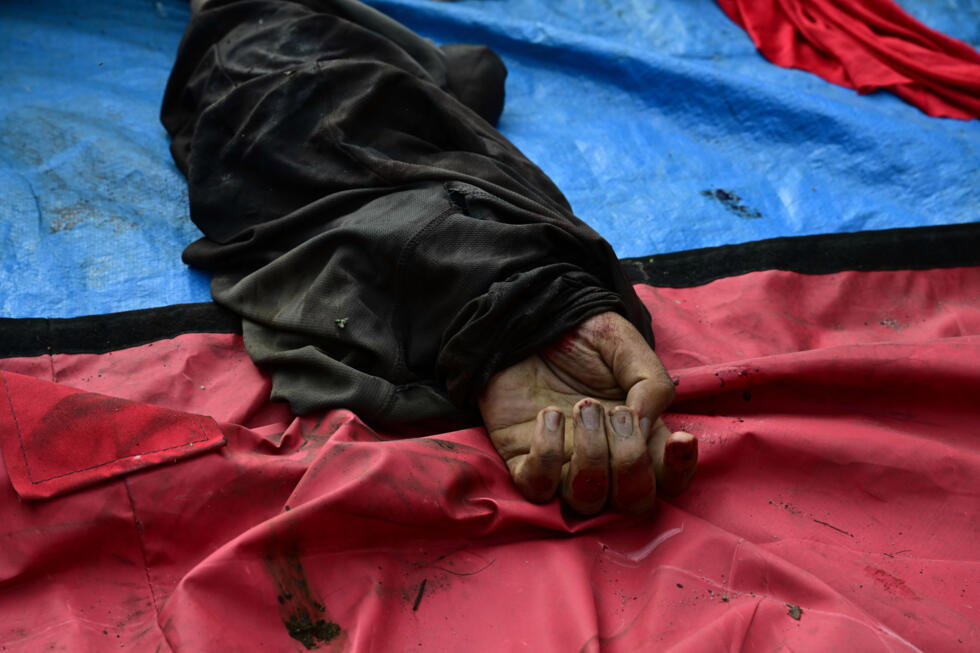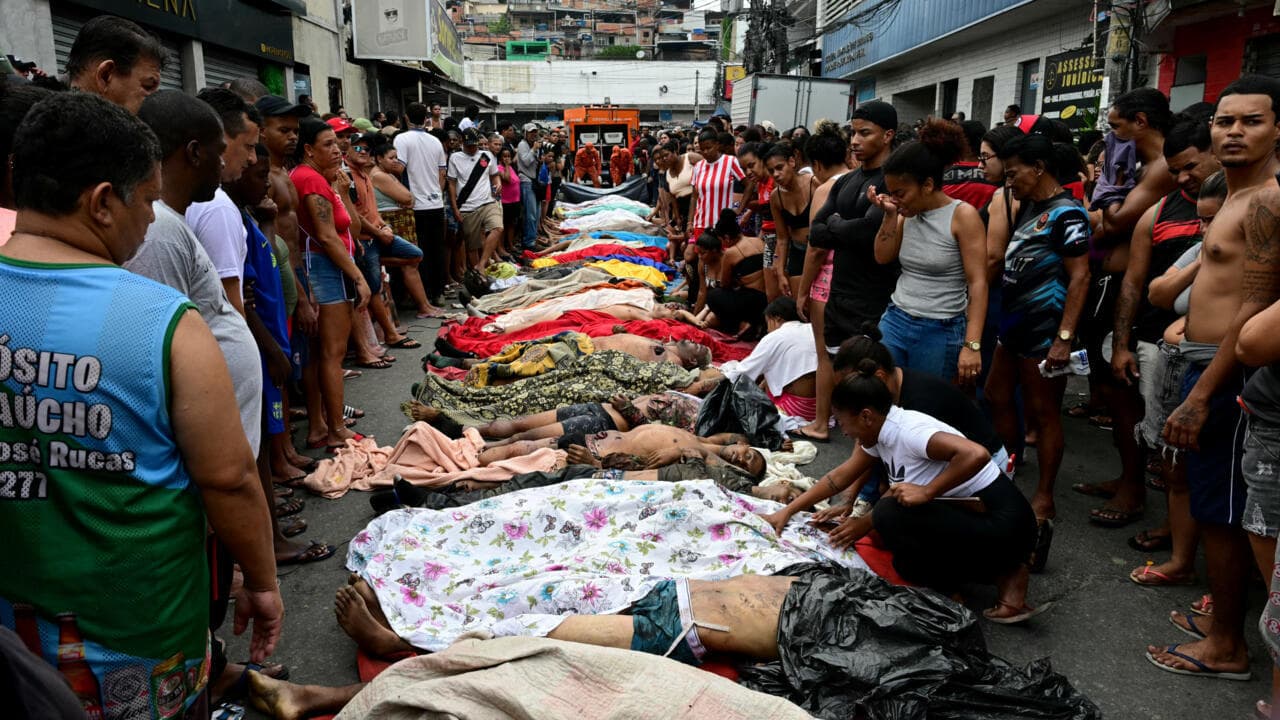Grieving residents laid out dozens of bodies in Rio de Janeiro's streets as the new death toll was announced, with some angry residents accusing the police of execution-style killings.
"The most recent update is 132 dead," the Rio state public defender's office, which provides legal assistance to the poor, told AFP. There was no immediate corroboration of the figure from other sources.
Rio state Governor Claudio Castro put the death toll from violence on Tuesday at around 60 but warned that the real figure was likely higher as more bodies were being taken to a morgue where the dead were being counted.
Four police officers were slain during the military-style operation, which involved 2,500 officers taking on Rio's most powerful criminal organisation, the Comando Vermelho or Red Command.
In Penha Complex – one of two densely populated, working-class neighbourhoods targeted in northern Rio – residents wept over a line of at least 50 corpses early Wednesday. A woman screamed as she hunched over the body of one of the victims, who were laid out in a line, covered in make-shift shrouds, some stained with blood.
Two girls, their faces streaked with tears, gently caressed the face of a dead man, wrapped in a sheet with a floral motif, and then hugged each other tightly.
"The state came to massacre, it wasn't a [police] operation. They came directly to kill, to take lives," one woman, who did not wish to give her name, told AFP.
Authorities said that"60 criminals" had been killed in fighting that unfolded during the drug raids in the Penha Complex and the Alemao Complex, located near Rio's international airport.

'Executions'
Angry residents accused the police of summary killings.
"There are people who have been executed, many of them shot in the back of the head, shot in the back. This cannot be considered public safety," said Raul Santiago, a 36-year-old resident and activist.
Lawyer Albino Pereira Neto, who represents three families that lost relatives, told AFP some of the bodies bore"burn marks" and that some of those killed had been tied up.
Some were"murdered in cold blood", he said.
Police raids in Rio's favelas, where drug gangs have a powerful presence, are a common occurrence. However, Tuesday's operation stood out for the scale and lethality.
The Office of the United Nations High Commissioner for Human Rights said it was"horrified" and called for "swift investigations".
A delegation from left-wing President Luiz Inacio Lula da Silva's government will travel to Rio on Wednesday for an emergency meeting with Castro.
Last year, approximately 700 people died during police operations in Rio, almost two a day.
The Human Rights Commission of the Rio state legislature will demand"explanations" of how the favela was turned into a "theater of war and barbarism", commission head Dani Monteiro told AFP on Tuesday.
The huge number of police officers who took part in the operation were backed by armoured vehicles, helicopters and drones as the streets of the favelas saw war-like scenes.
The police and suspected gang members traded heavy gunfire. Fires erupted around the neighbourhoods.
The authorities accused the suspects of using buses as barricades and of using drones to attack the police with explosives.
"This is not ordinary crime, but narcoterrorism," Rio state Governor Castro wrote Tuesday on X, where he shared a video from the fighting.

